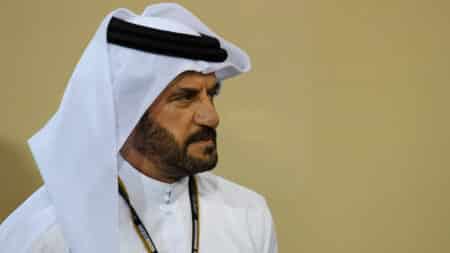
Prost laments Renault’s ‘sad’ F1 exit: ‘It’ll be difficult to come back’
Alain Prost has given his view on Renault exiting F1 as an engine manufacturer
The Bahrain Grand Prix is back on the 2011 Formula 1 calendar – despite widespread opposition from the teams – following a decision that is likely to pull Grand Prix racing into new, unnecessary turmoil.
Following a meeting of the FIA’s World Motor Sport Council on Friday, it was decided that the Sakhir circuit will host its race on October 30, the date previously taken by the inaugural Indian GP. That race is now likely to be shifted to December, although whether it will take place on the 4th or the 11th of the month has not yet been revealed.
The decision has been met with dismay by civil rights groups following the political unrest which first spilled into the streets in February, causing the postponement of what was supposed to be the season-opening race.
In the run-up to Friday’s meeting, the Bahraini government lifted the state of emergency that has existed in the island kingdom since protesters were killed during the February riots. The move has been considered a cynical tactic to allow the FIA to reschedule the race. Media reports suggest that unrest continues to be rife in Bahrain – even while the FIA meeting was taking place in Paris.

Once again, F1 has found itself caught up in a political storm far beyond its narrow borders. The teams, which have individually made it clear they would not be in favour of racing in Bahrain this year, now face the prospect of a nervous and tense weekend at Sakhir. The focus of the world will be on them – but not for the reasons they would wish.
Within the sport, the decision will have a huge impact logistically – in terms of insurance issues for the teams, media and personnel travelling to the race, and also because of the wide-ranging implications of the season finishing so late in the year.
But the damage for the sport will stretch far beyond logistics and practicalities. F1 will face worldwide condemnation for putting its own (financially driven) agenda ahead of ongoing abuse of human rights.

Bernie Ecclestone with Crown Prince Sheikh Salman bin Isa Hamad Al Khalifa
The teams are contracted to go – but they don’t have to. As we have reported in our July issue, the question of F1 being for sale and the looming negotiations for a new Concorde Agreement have sparked new debate about the power struggle in F1 between the FIA, rights holder CVC and the teams.
Motor Sport believes this decision to reinstate the Bahrain GP on to the 2011 calendar is the perfect opportunity for the Formula One Teams Association to take a stand. The teams should speak as one and boycott the Bahrain race. This is the acid test for the unity of an organisation that has held true since its formation.
If the teams and manufacturers are serious about taking control of their own destinies (not to mention a higher percentage of F1 profits), the time has come for them to prove it.
If the Grand Prix takes place, protests are guaranteed. The result of that could be the worst possible scenario. F1 could end up with blood on its hands.

Alain Prost has given his view on Renault exiting F1 as an engine manufacturer

Mark Hughes weighs up an exceptional 2025 rookie class, dissecting four contrasting debut seasons to reveal who truly stood out the most

Mohammed Ben Sulayem's has now been re-elected as FIA president, after a controversial first term. But how did he become the first non-European president in the FIA's history?

Cadillac is in a race against time to get its new F1 car ready for 2026 – sim driver Pietro Fittipaldi explains how it's running in the virtual world first